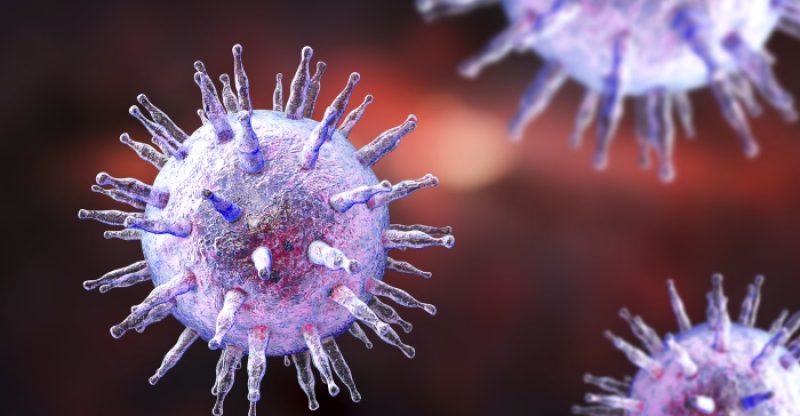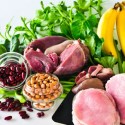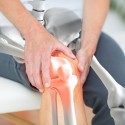How to Get Rid of Herpes Naturally
Herpes. Just the word alone makes us raise an eyebrow and look around the room to make sure no one heard us.
The truth is, herpes is an all-too-common sexually transmitted disease (STD).
In fact, it is estimated that 75% – that’s three quarters – of the general population in the United States has oral herpes.
Seventy-five percent? This may lead you to wonder…Do I have it?
The herpes virus is sneaky, with the ability to remain dormant in your immune system for a lifetime.
Many viruses, in fact, tend to have a life sentence; you just aren’t always aware of their presence.
There is no cure for herpes. Herpes will occasionally raise its ugly head in the form of blisters that turn into painful, irritating cold sores.
They may stay for between 10-14 days, before subsiding.
The discomfort is not only felt in the inflammation and pain they bring at the site of the sore but in the form of embarrassment, as well.
This may lead you to wonder if there are any successful methods for handling the herpes virus naturally.
Eradicating the virus completely may not be achievable, but there are natural methods and practices that can put the disease into remission, and make it easier to handle when an outbreak occurs.
Building a healthy immune system and giving your body the nutritional tools it needs to fight its own battles is a great step not only toward better health in general but for keeping a virus like herpes dormant, as well as for reducing the severity of a breakout should it occur.
This includes avoiding foods that may trigger an outbreak, adapting your diet to include foods that will help your body battle the virus, and adding herbs and supplements that can assist in the fight.
What is Herpes?
Not every human being who contracts the virus will even experience a breakout.
Your personal immune response will determine how your body handles it- sores or no sores.
Before we talk about natural methods to kick the virus, let’s look at what herpes actually is.
A virus is a microscopic organism and is essentially a parasite.
And they are everywhere; in fact, nearly every ecosystem on this planet contains viruses.
Their tendency to find a host and keep on replicating puts them in the parasitic category.
The two most common types are HSV-1 (Type 1: Oral herpes), and HSV-2 (Type 2: Genital herpes).
The clear sign that a herpes outbreak is occurring is its telltale sores.
Commonly referred to as cold sores or fever blisters, they can show up in and around the mouth in type one, and around the genitals in type 2.
Although you may become infected with the virus at a young age (it can be passed from person to person in ways other than a sexual encounter) the virus may lie quietly for years until the immune system weakens for any number of reasons, allowing the virus to create an outbreak of sores.
Since your immune response will determine if you have an outbreak, how severe it will be, how contagious you will be, and how long you will take to heal, it is important to address your immune system.
Nutritional Support for Herpes Treatment
Keeping your immune system functioning well is the best way to keep outbreaks to a minimum.
There are several foods that contain bioavailable nutrients that can not only keep you healthy but work directly against herpes and its disruption in your life.
Incorporating them into your diet is an excellent way to preempt an outbreak.
L-Lysine
This amino acid is one of the essential ones that your body does not produce on its own, and so must obtain from food or supplement sources.
L-lysine has been used to manage herpes sores for quite some time, and getting it straight from your food is typically the best method.
The recommended dosage as a supplement for cold sores is between 1 and 3 grams every day, spread out over the course of the day.
Aim for the higher end of that recommendation during an outbreak.
Ultimately, if you can scramble an egg for breakfast, sprinkle a handful of pumpkin seeds over a salad, snack on some cheese, and enjoy a piece of fish for dinner, you’re headed in the right direction.
Carotenoids and Bioflavonoids
In addition to the anti-inflammatory qualities and immune system benefits, carotenoids are also antioxidants, bringing strong cancer-fighting properties to the table.
They are the pigments that give rise to red, orange, and yellow hues in fruits and vegetables.
Bioflavonoids are a whole host of other fruit and vegetable pigments that act as antioxidants, not only fighting free radicals in the body but enabling vitamin C to be properly utilized by it.
Bring on the colorful foods, and eat your rainbow!
Vitamin C
Vitamin C is widely known for its function as an immune-boosting superpower and can give your body extra strength to fight off a herpes outbreak.
Oranges, pineapple, grapefruit, and others contain high amounts of vitamin C.
Among the more unusual ones, you’ll find cauliflower, Brussels sprouts, kale, broccoli, and even parsley.
Omega-3’s
Omega 3 fatty acids, like l-lysine, are not produced by your body and must come from the foods or supplements you consume.
Among many health benefits, it is thought to reduce inflammation, thus reducing the pain associated with outbreaks.
If you don’t want to eat fish for your Omega-3’s, wild rice, farm fresh eggs, walnuts, and grass-fed dairy are good sources.
Zinc
Zinc is your second superpower when it comes to the immune system.
Inflammation can be a good thing, but too much is not.
Zinc plays a crucial role in your immune system’s fight against the disease, including those such as herpes, by disabling the inflammation process before it gets out of control.
What Should You Eat?
- Red Meat & Eggs. Grass-fed beef and lamb contain lysine and zinc. Farm-fresh eggs contain lysine, as well as carotenoids.
- Wild-Caught Fish & Shellfish. Omega-3, lysine, and zinc are found in fatty fish like salmon. Wild-caught shellfish contains an abundance of zinc.
- Cheeses. Cheeses contain lysine, with Parmesan having the highest concentration. Look for grass-fed cheeses when possible.
- Pulses. Otherwise known as lentils, beans, and chickpeas, pulses contain plenty of lysines, and trace amounts of zinc.
- Nuts and Seeds. Pumpkin seeds contain both lysine and zinc, and cashews contain the highest amount of zinc of any nut.
- Brightly colored fruits and veggies. Oranges and other citrus fruits are great for vitamin C, but did you know that greens contain it, as well? Spinach, kale, and Swiss chard are all nutrient-dense and have a long list of health benefits, including vitamin C and zinc. Red bell peppers offer not only carotenoids but three times the amount of vitamin C as an orange. Mangos and kiwi also give you a boost of C and don’t forget butternut squash, sweet potatoes, and apricots for carotenoids. Basically, the more color you add to your diet, the more likely you are to get the immune-boosting, health-giving powers that they offer, giving you a leg up on diseases like herpes.
What Should You Not Eat?
- Sugar & Alcohol. Sugar and alcohol both increase inflammation in the body. They also feed yeast, potentially leading to an overgrowth. This overgrowth gives the body one more problem to deal with and can take precious resources away from immune defenses.
- L-Arginine. In the same protein-building-block category as lysine, this amino acid can actually help the herpes virus replicate during an outbreak. A proper balance is important to everything in your body, and the balance between l-arginine and l-lysine is no exception. Amino acids co-occur in all of the typical sources, like nuts, seeds, and meat, so it’s nearly impossible to find sources of lysine without also getting arginine. They both serve a purpose in your body; you need a balance of both to maintain health. Taking an outside source of arginine in the form of a supplement may throw off your body’s balance of these two amino acids; in this particular case, that can be exactly what your body doesn’t need.
- Acidic Foods. Obviously, you don’t want to irritate or inflame existing sores. Avoiding citrus and tomatoes during an outbreak is a good idea, but keeping them in your diet under normal conditions is still an excellent way to support your immune system.
- Processed Foods. Many of the problems with our modern diet arise from the consumption of processed food. While it is best, in general, to avoid these when possible, it is especially necessary when fighting a viral infection like herpes. Nutrient-dense foods give your body a winning chance; processed foods only make it work harder.
Natural Options for Herpes Treatment
Structured Silver
The modern sister to colloidal silver, this amazing liquid packs a one-two punch to viral, bacterial, and fungal infections, naturally.
While you can fight the virus from within and take a structured silver liquid internally, a structured silver gel is also available that can be applied topically to sores.
The good feature of structured silver is that, when ingested, it only attacks the harmful bacteria, leaving the good bacteria alone and your healthy microbiome intact.
Herbs & Supplements
- Echinacea treats more than colds and the flu and can be taken in liquid drops, capsules, or brewed into a cup of tea.
- Garlic is a powerful food for your health. Not only should you add fresh garlic in as many meals as you can, but it can be supplemented in capsule form.
- Elderberry is gaining popularity, showing up on more shelves for flu prevention. Its antiviral capabilities treat more than just the flu, and it can be consumed as a tea, a syrup, tonic, a pill, or even combined with zinc in a lozenge form.
- Calendula fights both bacteria and viruses and has the ability to reduce inflammation, as well. Available in ointment and cream forms, you can apply calendula directly to herpes sores to reduce the outbreak’s severity.
- Lemon Balm contains tannins that are naturally antiviral, and when applied topically to fever blisters it can provide almost instant pain relief. Soak two tablespoons of lemon balm leaves in 2 cups boiling water; drink it as a tea, or soak gauze in the tea and use it as a compress.
- L-Lysine is available as a supplement, although the best way to consume it is through food. Again, balance is key, so take care when supplementing lysine in addition to what you are consuming through your diet. Too much lysine may actually lead to overdose, possibly causing gallstones and stomach issues. A normal dose is around 1 gram per day, up to three grams therapeutically for herpes.
- Zinc is available in tablet or capsule form, and combined with vitamin C in a lozenge, as mentioned above. You can also find a zinc cream to apply topically to sores.
Essential Oils
Lavender, tea tree, and oregano oils are among many essential oil options for fighting viruses and illness, but these three are the most effective on the lower end of the price scale
Using an organic aloe vera gel as a carrier adds even more relief when applied topically to existing sores.
Add 6 drops of lavender or 8 drops of tea tree to 1 tablespoon of natural aloe vera gel, or combine both (3 drops of each) for an even more effective and calming topical soother.
Take care with oregano oil, as it is a “hot” oil, and can burn your skin if not diluted properly.
Combine 4 drops of oregano oil with 1 tablespoon of aloe.
Never apply essential oils directly to your skin without a carrier, especially oregano.
Healthy Practices for Outbreaks
Developing good hygiene habits during an outbreak of cold sores can help the sores heal faster and prevent the spread of the virus, on you or to someone else.
- Wash your hands often. The easiest way to prevent the spread of any disease is to wash your hands often with soap and warm water.
- No kissing! If you really love someone, you’ll refrain from kissing them when the virus is active and there are sores present. It should also be mentioned that if you suffer from genital sores you should most definitely abstain from sex. Use logic, and don’t let your sores come into contact with another person.
- No sharing! Don’t share your toothbrush, your lipstick, your fork or your spoon.
- Leave the sores alone. The more you touch your sores, the more irritated they will become, lengthening the time they take to heal.
- Avoid conventional creams and salves. Most over-the-counter skin cream you reach for at the drug store will be petroleum-based, and full of emulsifiers and preservatives you can’t pronounce. Your best bet is to treat your broken-out skin respectfully with all-natural products that won’t increase inflammation.
- Use a warm compress to ease discomfort. Warmth alone helps alleviate the pain associated with cold sores, but try using a lemon balm or chamomile tea in lieu of warm water for an added benefit. Follow the compress with any of the topical salves or aloe-essential oil mixture mentioned above.
When to See a Doctor
Have you never been formally diagnosed with herpes but suspect you may be infected?
Your doctor can determine if it is in fact herpes, and this will get you well on your way to treating and managing it.
Diagnosis usually includes a physical exam, and a swab or blood test.
Herpes symptoms that may mean you are infected include:
- Broken, painful blisters that scab over, and heal over a period of 10-14 days.
- Symptoms that mimic the flu.
- Swollen lymph nodes.
- Broken, painful blisters or sores in or around the mouth, in the genital region, the rectal area, the buttocks, or the thighs.
- Swollen rash around the sores as they develop.
- Rarely, sores that occur inside the urethra, causing painful urination.
- Tingling or itching sensations that occur before the blisters develop.
Treating Herpes Conventionally
Prescription anti-viral medications are available orally and topically.
As with natural approaches, these medications do not eradicate the virus.
Again, there is no herpes cure.
If you find that natural solutions are not alleviating symptoms and outbreaks are occurring frequently, talk to your doctor about other methods.
There are no successful vaccines available for HSV-1 or HSV-2.
If you experience blisters that have difficulty healing and have become infected, be sure to visit your doctor to get rid of the infection and control the outbreak.
What You Need to Know
- The prevalence of HSV-1 (oral herpes) is 75% in American adults.
- The prevalence of HSV-2 (genital herpes) is 20% in American adults.
- Herpes is more prevalent in women than in men, as it is easier for women to contract it than men.
- Multiple sex partners increase your risk of contracting herpes. More and more people are spreading the disease, simply because they don’t know they have it.
- Newborns can actually contract the disease if the mother has herpes as they pass through the birth canal. This is commonly tested for during pregnancy, as it can lead to complications for the baby.
- You can contract it multiple ways, whether just through kissing or full sexual intercourse.
- Smoking, drinking and using drugs increase your risk.
- Eating a poor diet leads to poor health and to nutritional deficiencies, putting your immune system at a disadvantage, and herpes symptoms may not be seen even though the virus is inside you.
- If you are concerned that you may have it but have not yet experienced an outbreak, there is no harm in getting tested. You may never experience an outbreak, especially if you take a positive approach and choose to take care of your body.
- Once you come into contact with active herpes, the incubation period is about one week. At this point, the virus will either become an active outbreak or will become dormant.
- It is important to remember that for most people, this virus is bothersome and aggravating. However, for those with an immune system that is compromised by another illness, it can be very dangerous. If you have an active outbreak of herpes sores, practice healthy hygiene, and be aware so as to not infect others.
- If you become infected with herpes and experience your first outbreak, take solace in the fact that your first will likely be your worst. You will build immunity with the first round, and any outbreak that may happen after that should not be as severe.
Conclusion
- Choose foods rich in nutrients such as lysine, carotenoids, omega-3’s, vitamin C, and zinc to give your immune system the power it needs.
- Consume foods such as red meat, eggs, cheeses, lentils, and brightly colored fruits and vegetables to obtain the nutrients you need.
- Avoid sugars, alcohol, arginine supplements, and processed food as much as possible, to maintain healthy immunity, and avoid acidic foods during a herpes outbreak.
- Natural options to treat herpes include structured silver, herbs (calendula, Echinacea, garlic, elderberry), supplements (l-lysine, zinc), and essential oils (lavender, tea tree, and oregano).
- Practice healthy hygiene during an outbreak of sores by washing your hands often, abstaining from kissing and sexual activity, avoiding sharing of personal items like toothbrushes, and avoiding conventional creams and salves.
- See a doctor if you suspect you may have herpes, to prevent spreading it to others.
- See a doctor if your symptoms and sores worsen and become infected.
- Prescription antiviral medications and topical creams are available if natural solutions are not working well.
While herpes is rarely discussed, it is still a disease that affects three-quarters of our population.
If you are one of those three quarters, I hope you know now that there are healthy and realistic ways to manage it.
And in the end, if you choose to take care of your body and give it the nutrients it deserves, other aspects of your life will most certainly improve, as well.
FDA Compliance
The information on this website has not been evaluated by the Food & Drug Administration or any other medical body. We do not aim to diagnose, treat, cure or prevent any illness or disease. Information is shared for educational purposes only. You must consult your doctor before acting on any content on this website, especially if you are pregnant, nursing, taking medication, or have a medical condition.
HOW WOULD YOU RATE THIS ARTICLE?





